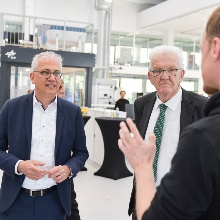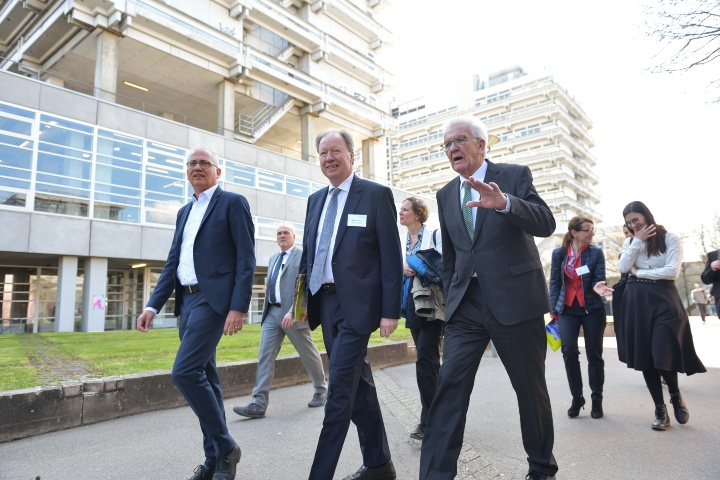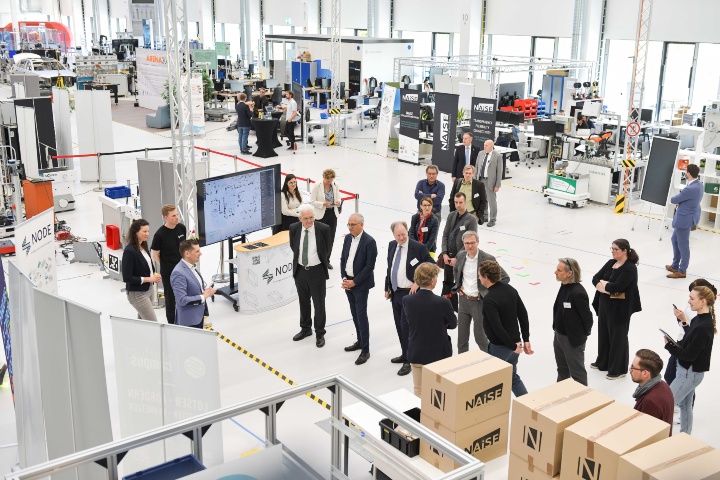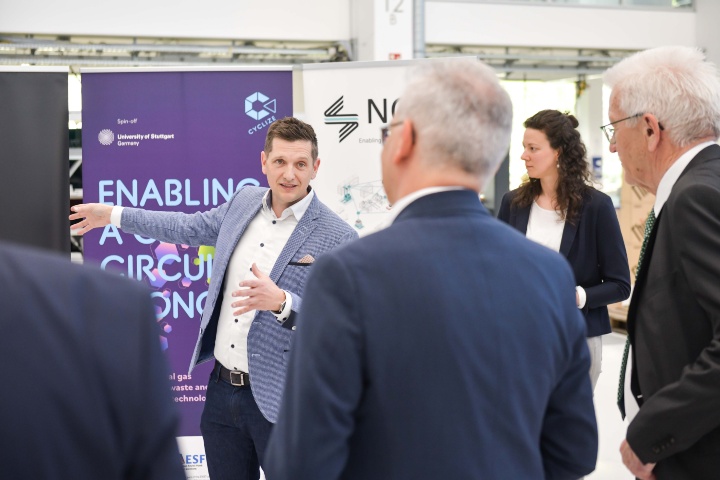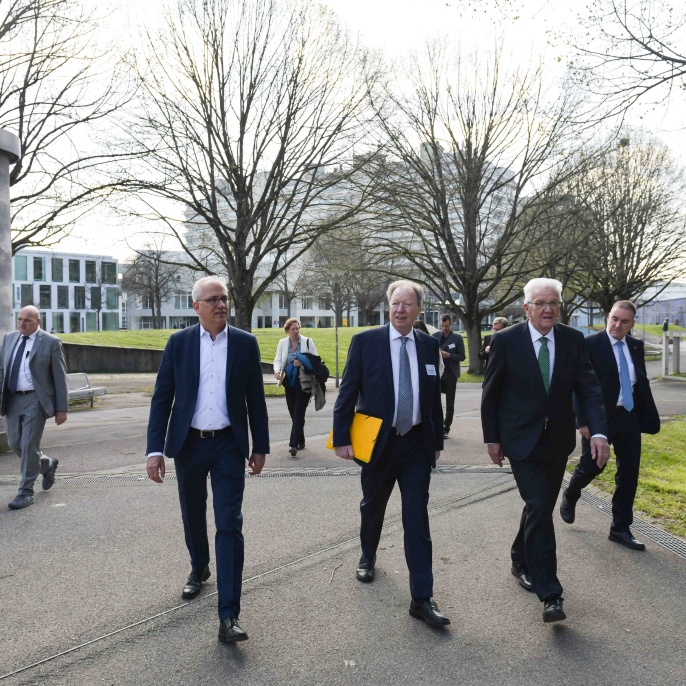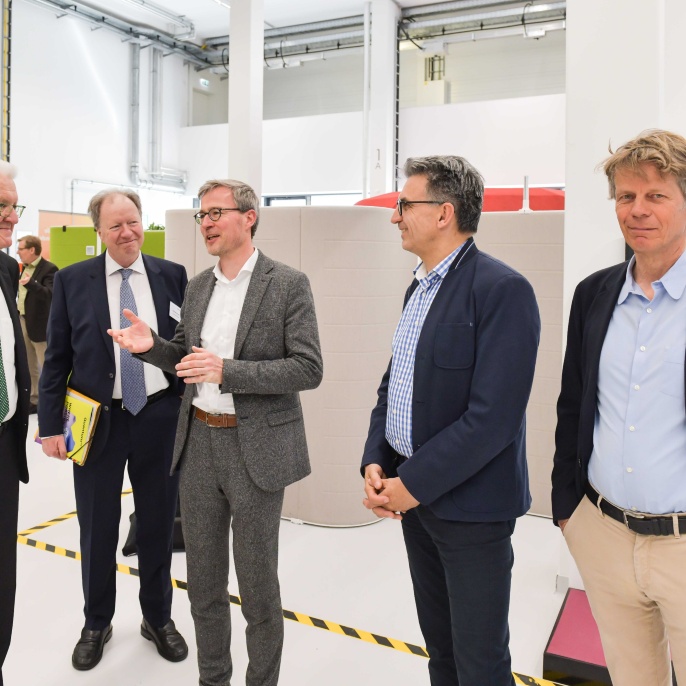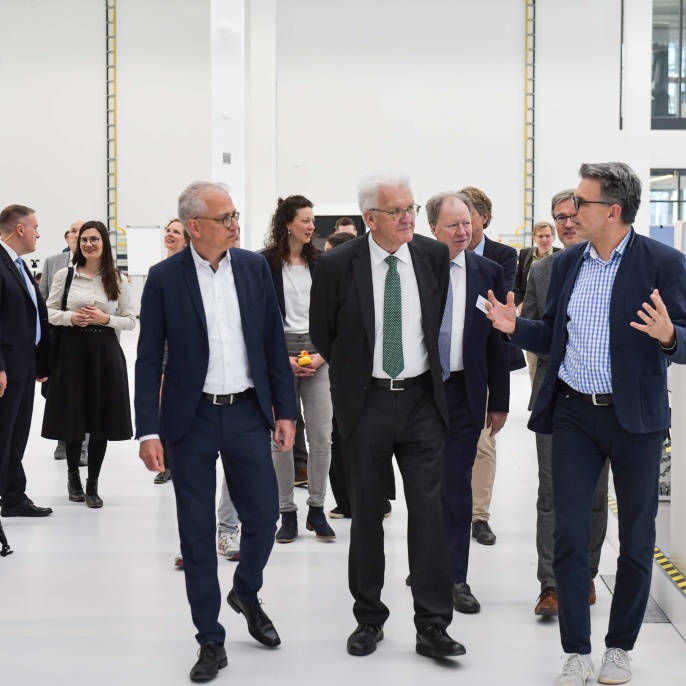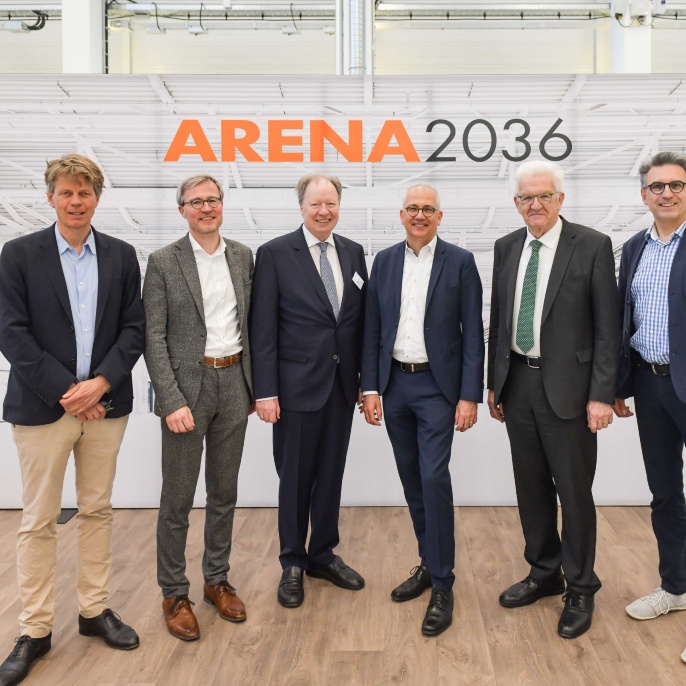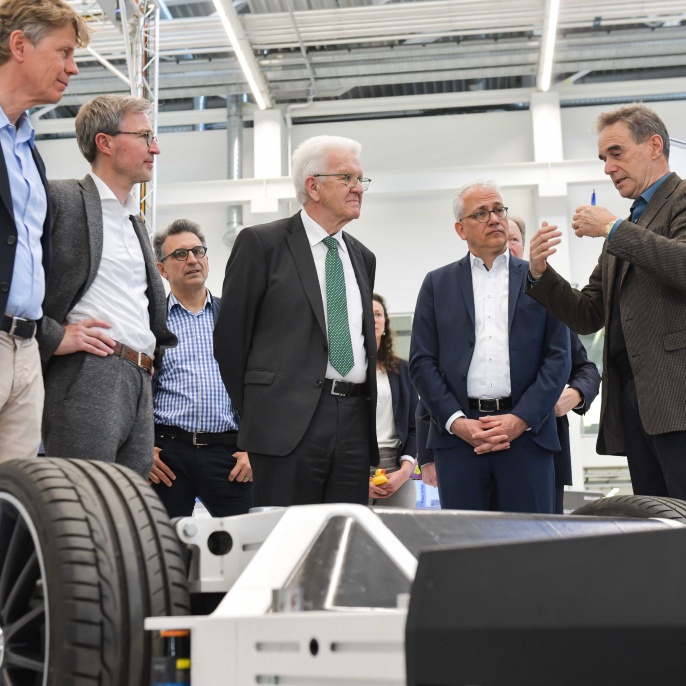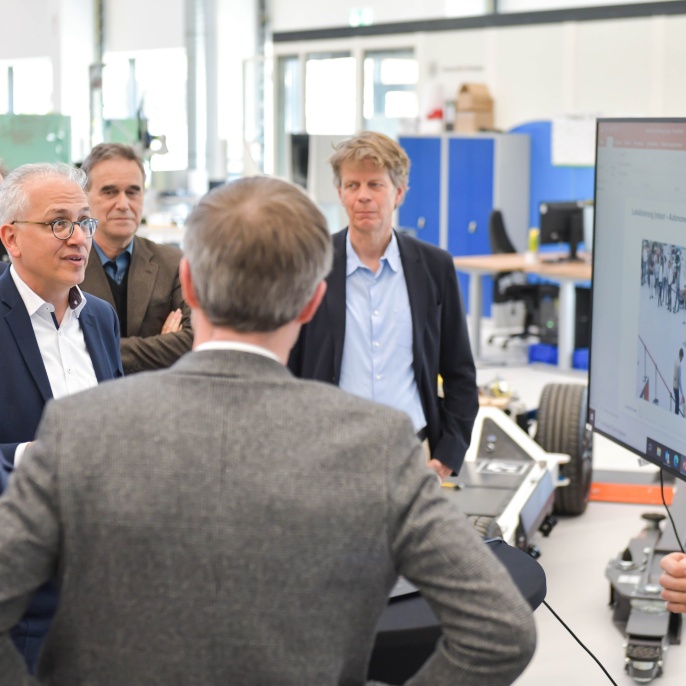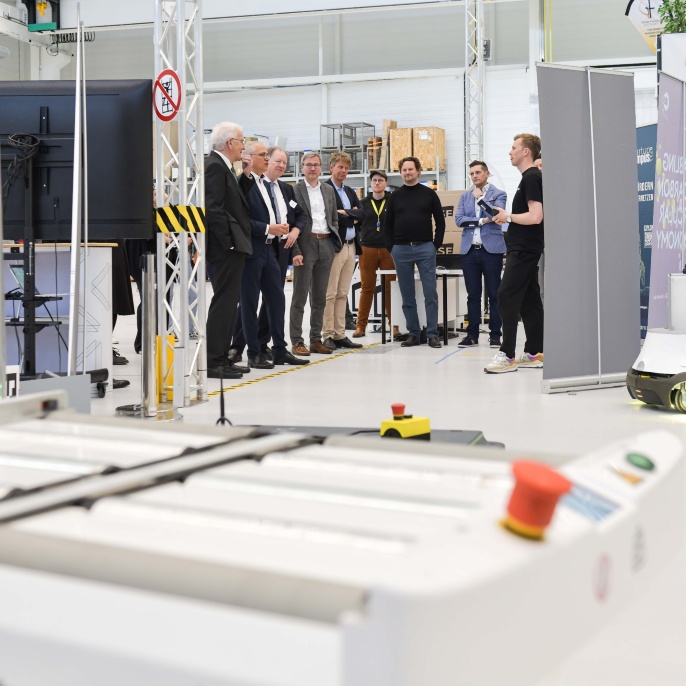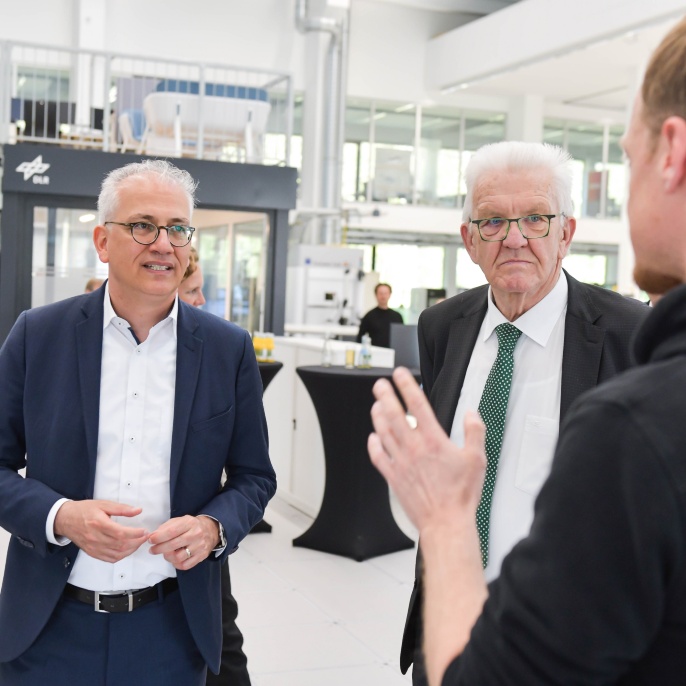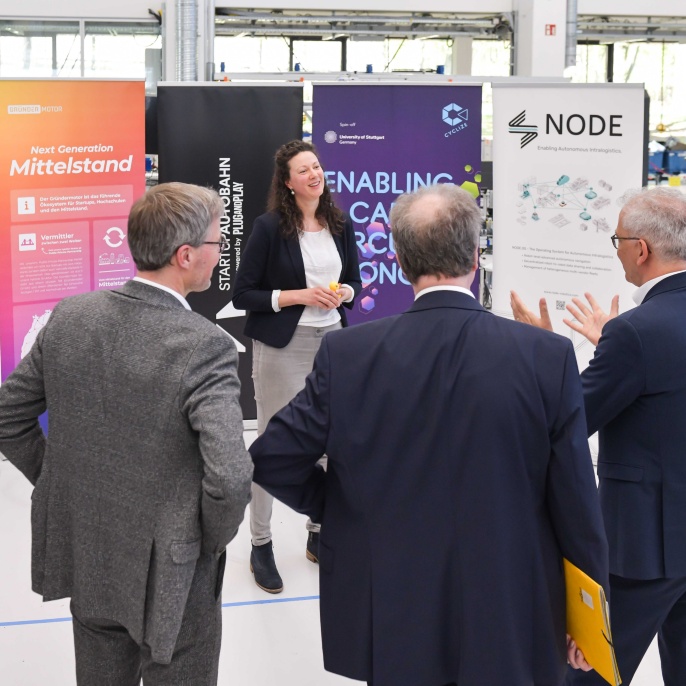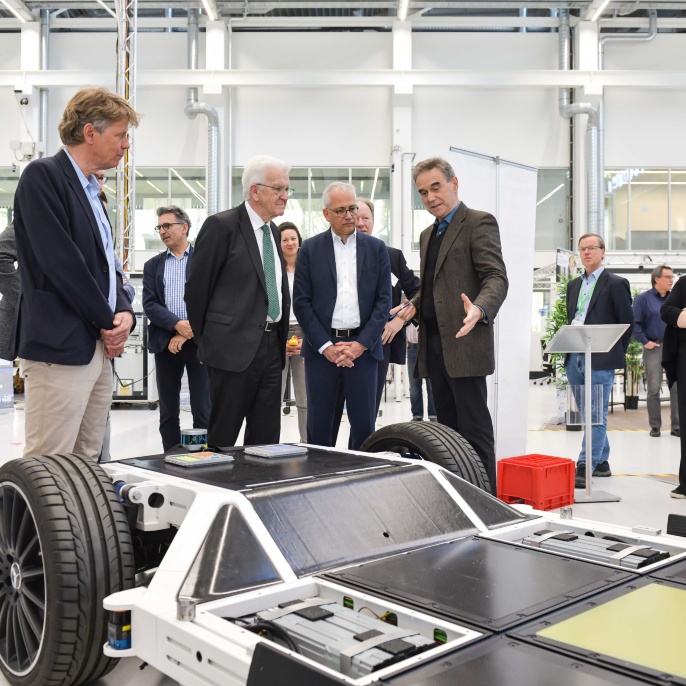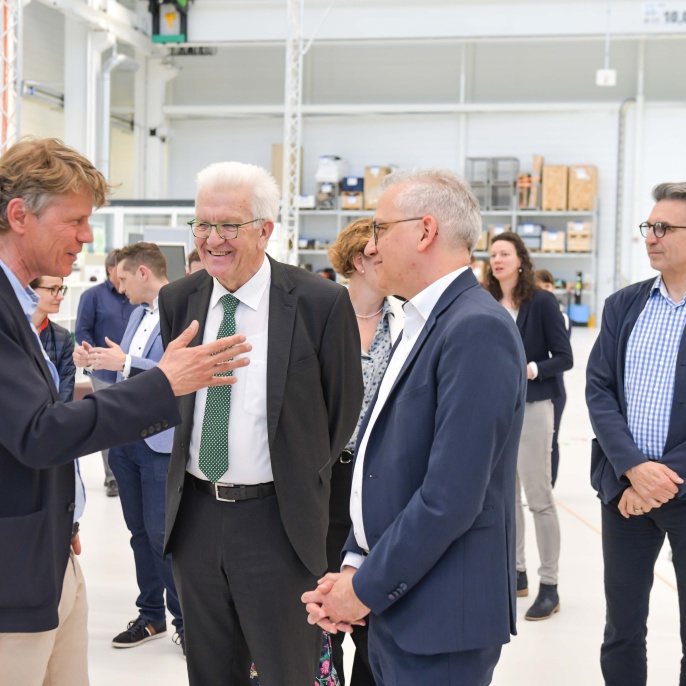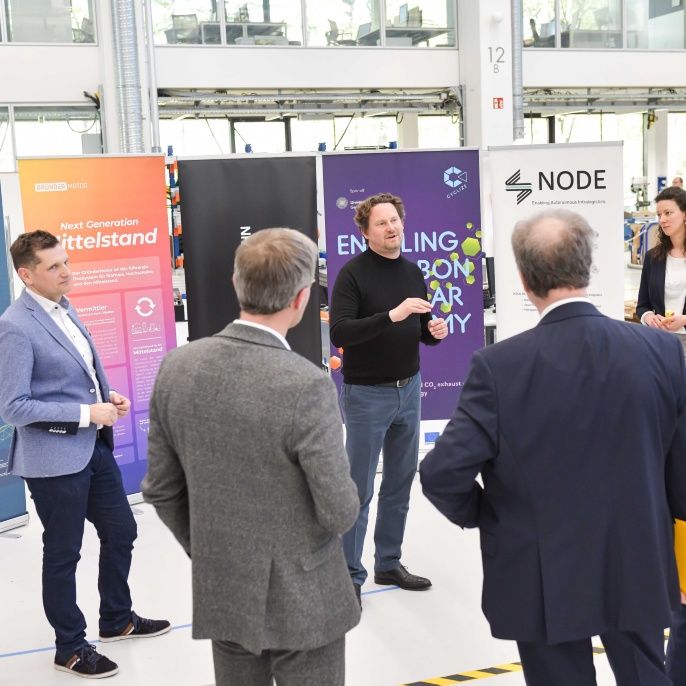To promote the exchange within the field of research and the industrial transfer between the counties of Baden-Württemberg and Hessen, the minister-president of Baden-Württemberg Winfried Kretschmann and the Hessian minister for economics, energy, transport, and housing Tarek Al-Wazir visited the research campus ARENA 2036 at the University of Stuttgart.
After the Minister President, together with representatives from science, politics and industry, launched the "QuantumBW Innovation Offensive in Quantum Technology" of the state of Baden-Württemberg at the Center for Applied Quantum Technology (ZAQuant), Kretschmann, Al-Wazir and Ressel walked across the campus Vaihingen to ARENA2036. This research campus and innovation platform for cooperation between science and industry is a prime example of how excellent research for scientific-industrial cooperation can be united within one location. Success stories like the ARENA 2036 have the potential to be cornerstones for further developments in innovation because they accelerate the exchange of experience, which again can increase the competitiveness of Germany.
Presentation of the research campus ARENA2036
After a brief welcome by the Vice Rector for Knowledge and Technology Transfer of the University of Stuttgart, Prof. Peter Middendorf, and a brief statement by Minister President Kretschmann, an overview of the research campus and its development followed. Special attention was given to the project of the interactive floor, which promotes a modern, flexible, and secure production. In the ARENA 2036, those processes are being analyzed and optimized in real-time on the demonstrator.
In addition, the BMBF-supported joint-project FlexCAR, which deals with updateable and upgradeable cars, was presented. The cyber-physical vehicle-platform aims to develop components within an innovation network that are self-reflective self-descriptive and service-oriented and can be portrayed as a vehicle-demonstrator.
The search for creative ideas and solutions as well as the collaboration with students and young talent in the technical sector was being presented by the “Design Factory” and staff of ARENA 2036 e.V. The Design Factory is an open learning-by-doing platform for industry partners and students to foster innovative potential through different learning formats like workshops, courses and trainings.
Examples of successful transfer
Many key projects and start-ups from the entrepreneurship Ecosystem of the University of Stuttgart are integrated into the research campus. The minister-president and the Hessian minister were being informed about selected key: the local initiative Startup Campus 0711 which supports founders at the Campus Vaihingen and beyond with other institutions in the region, the Baden-Württemberg-wide initiative Gründermotor, an approach that supports and links all players of the start-up ecosystem to facilitate cooperation and innovation, and finally STARTUP AUTOBAHN, an international innovation platform that connects start-ups with industry-leading corporate partners.
Both also gained insights into the start-ups Cyclize and NODE. Cyclize replaces natural gas with plastic waste and exhaust CO2. The product is a synthesis gas, the basic building block from which the chemical industry can build anything. NODE has developed software that allows mobile robots to navigate autonomously in complex environments through the help of AI. Both start-ups have received a funding for transfer of research from the BMWK's funding program EXIST.
Digital technology for innovations in design and construction
The presentation of the excellence Cluster marked the closing of the visit “Integrative Computational Design and Construction for Architecture” (IntCDC) conducts architecture in a new way. The objective is to use the full potential of digital technology by planning and building in an integrative, interdisciplinary way. That way, the project wants to achieve pioneering innovations in architecture.
Media contact
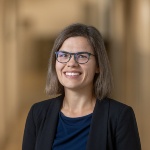
Lydia Lehmann
Deputy Head of University Communications


